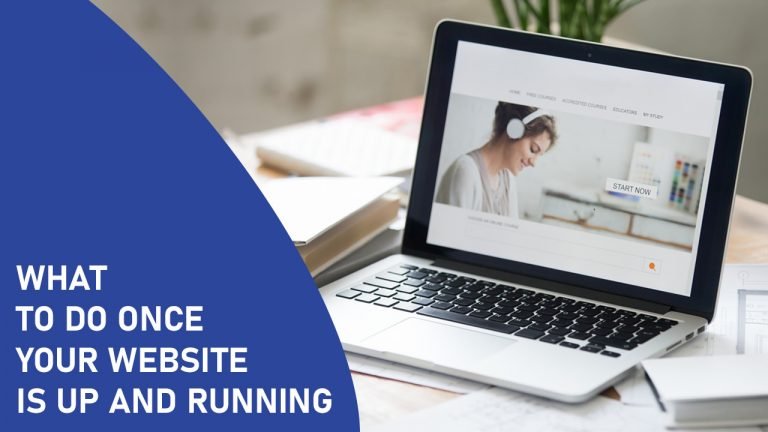
So, you’ve taken the first steps and got your website up and running, but what is your next move?
There are lots of considerations when you’re starting a new website, but we’ve picked out some of the most important ones. If you follow these steps, then it will help set your website up for success, ensuring the security of your visitors, and allowing your pages to show up in the search engines.
Here’s what to do once your website is up and running.
Install Security
One of the first things you need to ensure is that the people who are using your website are safe. You can’t afford to risk the security of your visitors just for the sake of being lax on security, and it’s an issue that is prevalent in modern-day society.
Asides from protecting your visitors and customers, you also want to protect your own hard work. All the effort you put into building your website can quickly be undone if the wrong person gains access to the backend, and it can put you back many months.
You’ve invested in building your website, so you need to protect that investment by making sure you’re getting your security right with an NSv application, for example.
Keep Updating Your Content
It’s easy to go through all the excitement of building your website and creating the initial content but then lose some motivation a little further down the line. If you want to attract more people to your site, though, you’ve got to continue to keep updating and putting out great content.
Especially if you’re looking to get organic clicks from the search engines, then it’s important to keep building your site with lots of content. It can be difficult because you don’t see the rewards of your hard work immediately, but if you’re consistently putting out good content, then the clicks will come.
It’s important to keep your site updated and relevant, and it’s something you need to stay on top of.
Optimize for Mobile
The desktop is no longer king, and more traffic now comes from mobile. Because we build our sites on a desktop, though, we still have a tendency to get carried away with formatting for desktop traffic, and it can come at the expense of mobile.
Google recognizes the importance of mobile traffic, and now uses mobile-first indexing to evaluate your site, so if you want to rank, then your mobile experience has to be as good as your desktop experience.
You simply can’t afford to ignore mobile, so it’s a great idea to go through all your content and make sure it’s fully optimized for these devices.
Keep Checking for Speed
One thing you always need to be aware of is your page load speeds. As you grow your website and load it up with different applications and multimedia files, it can have a significant impact on how fast your pages load.
In the modern world, with fast internet connections, people expect websites to load quickly, and if they don’t, they will click away. Every second your page takes to load has a big impact on your bounce rate, so the slower your pages load, the more visitors you will miss out on.
This is made worse by the fact it’s very difficult to rank well with a slow site, so making sure your load speeds are good is an important step.
Work on Your SEO
If you’re going to make a website, then you probably want it to show up in the search engines. The way you achieve this is by consistently working on your SEO and following good practices.
The best place to start is to make sure you are always offering value to your visitors. If you can answer the questions your target audience has in a thorough yet entertaining way, then you’re going to please a lot of people, and this is going to please the search engines.
It’s often made to seem like only professionals can master SEO, but anyone can do it with a little hard work.
There’s nothing stopping you from getting ranked for your target keywords, so keep working on your SEO, and watch the organic visitors come in.